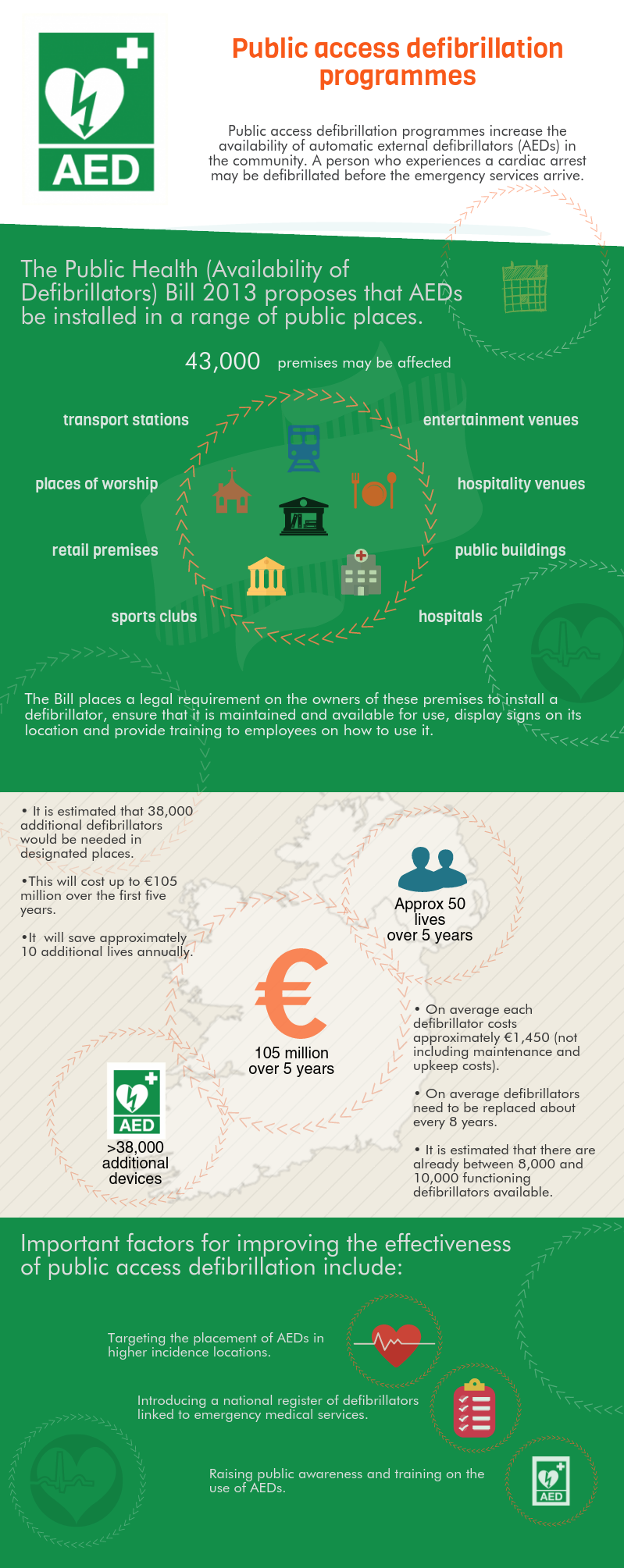Following a request from the Minister for Health, the Health Information and Quality Authority agreed to undertake a health technology assessment of public access defibrillation in Ireland to inform a decision regarding the Public Health (Availability of Defibrillators) Bill 2013. The assessment was completed and submitted as advice to the Minister for Health for consideration.
HTA of Public Access Defibrillation
The purpose of this HTA was to examine the implications of establishing a national public access defibrillation (PAD) programme in Ireland to increase survival from out-of-hospital cardiac arrest (OHCA).
Out-of-hospital cardiac arrest continues to be a major cause of death in Ireland, claiming approximately five lives per day. The challenges in tackling this complex problem are evident from international data showing that survival rates have remained practically unchanged over the last three decades, despite improvements in treatment and the organisation of services. Rapid defibrillation is recognised as a crucial link in the chain of survival.
The Public Health (Availability of Defibrillators) Bill 2013 proposed a substantial increase in the availability of static defibrillators compared to the present situation. This proposed legislation identifies a range of designated places where defibrillators would be installed and made available for use by trained staff or members of the public in the event of a cardiac arrest in the vicinity.
This assessment examined the clinical and cost-effectiveness of different strategies to make automatic external defibrillators more widely available, so they can be used in the event of a cardiac arrest, as well as the wider implications of implementing a public access defibrillation programme.
